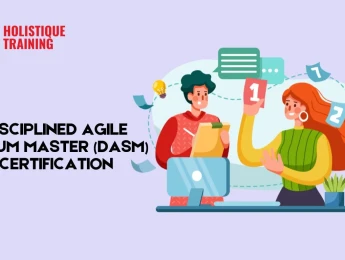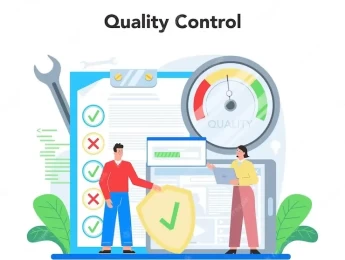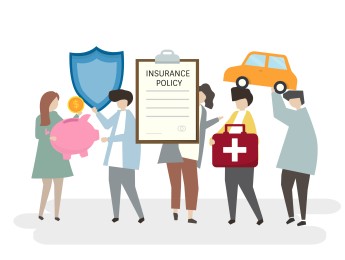Effective project management is essential within any organisation, but especially within construction. Construction projects involve many different factors and considerations, and it is crucial to plan and prepare thoroughly to ensure the ideal result.
Successful project management requires highly competent individuals in their specific roles. Projects require multiple teams of individuals to work in alignment to achieve maximum productivity while maintaining a high-quality output.
Cost and site management are incredibly important factors to consider when beginning a project. Site management goes hand in hand with cost management, ensuring all material and product waste is minimised and disposed of safely. Investing in road construction and security can greatly and positively impact costs, as these can remove the risk of materials becoming damaged in transportation and minimise the risk of vandalism.
However, risk management arguably is one of the most important aspects of project management. Conducting risk assessments and audits is an essential process that must be done regularly to guarantee employee safety and reduce the possibility of hazards.
Upon completion of this course, participants will be able to:
- Understand the importance of effective project management.
- Review what areas fall under project management.
- Assess the role and responsibilities of each aspect of project management.
- Develop strong communication skills.
- Delegate tasks efficiently and accordingly.
- Enhance project productivity, reduce waste, costs and increase profitability.
- Maintain risk management to protect the project development and employee safety.
- Identify the steps of a process from innovation, planning, constructing, implementation and post-implementation monitoring.
- Analyse methods and techniques of effective planning, record keeping and progress monitoring.
This course is designed for anyone within the process of project management who wishes to develop their skills. It would be most beneficial for:
- Project Managers
- Construction Managers
- Site Supervisors
- Contractors and Subcontractors
- Operations Managers
- Planning and Design Managers
- Project Engineers
- Financial Advisors
This course uses a variety of adult learning styles to aid full understanding and comprehension. Participants will review case studies based on established construction projects to highlight key management features and how they overcame challenges.
Participants will participate in many learning exercises to comprehensively understand the taught content. Combined with presentations, practical demonstrations, role-playing and group activities, participants will be highly confident in the related skills. They will also have the opportunity to work with one another to develop their own project management plans in relation to their specific roles.
Day 5 of each course is reserved for a Q&A session, which may occur off-site. For 10-day courses, this also applies to day 10
Section 1: Introduction to Project Management
- Defining what project management is.
- What external and internal factors influence project management?
- The consequences of poor project management.
- What features are included – cost, risk, change and implementation management.
- Laws and regulations that impact construction projects.
- The roles and responsibilities of a construction project manager.
Section 2: Innovation and Planning
- The importance of innovation in project management.
- Methods and techniques for encouraging innovation within a team.
- Aligning client wants and needs with industry standards.
- Creating action plans detailing project goals, objectives and ideal outcomes.
- Ensuring all plans are fully comprehensible for all necessary personnel.
- Project complexity and managing maturity models.
Section 3: Project Life Cycle and Cost Management
- Understanding project phases and construction stages.
- Assessing the 5 project lifecycle stages.
- The importance of cost management.
- Managing budget with project vision.
- Project cost estimation.
- The types of costs within projects – fixed, variable, direct and indirect costs.
- Maintain important financial documents such as cash flows to monitor costs carefully throughout project stages.
Section 4: Site Management
- Establishing site boundaries.
- Creating easily accessible roads so all vehicles can move freely and safely.
- Providing the necessary accommodations to employees to ensure their tasks can be completed efficiently.
- Ensuring all waste disposal is done safely and within guidelines for each material.
- Employing site security where required.
- Managing site logistics.
Section 5: Risk Management
- Defining risk management.
- The vitality of risk management within project management.
- Conducting risk audits and assessments.
- Methods of effectively and safely assessing potential risks.
- Establishing risk management plans detailing risks and finding solutions if they were to occur.
- Prioritising employee safety.
Upon successful completion of this training course, delegates will be awarded a Holistique Training Certificate of Completion. For those who attend and complete the online training course, a Holistique Training e-Certificate will be provided.
Holistique Training Certificates are accredited by the British Assessment Council (BAC) and The CPD Certification Service (CPD), and are certified under ISO 9001, ISO 21001, and ISO 29993 standards.
CPD credits for this course are granted by our Certificates and will be reflected on the Holistique Training Certificate of Completion. In accordance with the standards of The CPD Certification Service, one CPD credit is awarded per hour of course attendance. A maximum of 50 CPD credits can be claimed for any single course we currently offer.
- Course Code IND13-108
- Course Format Online, Classroom,
- Duration 5 days














